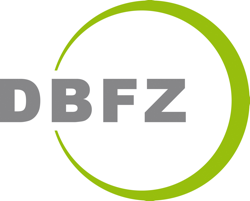Partner region Europe
With the Green Deal, the European Union is developing a complex and holistic approach to transforming the economy and society into a liveable, modern, resource-efficient and competitive community. All sectors, from agriculture and forestry, to energy, transport, industry and trade, to nature conservation, biodiversity and natural heritage, are to make their contribution. This presupposes that the EU as a whole, as well as each individual member state, will quickly and responsibly take up its shaping roles and consistently drive forward the transformation process from a linear economy based on fossil fuels to a sustainable circular economy driven by renewable energies.
Since it was founded in 2008, the DBFZ has been researching innovative concepts and technological approaches that support and actively develop the above-mentioned transformation process, particularly in the area of material and energy use of biogenic resources.
As part of 35 EU projects with almost 370 partners from Europe and other associated and partner countries (as of 19 June 2025), the DBFZ is working on the following bioenergy and bioeconomy-related topics (selection):
- Support in identifying policy priorities and recommendations for shaping a sustainable path towards bio-based circular systems
- Harmonisation and monitoring platform for certification schemes and labels to promote the sustainability of bio-based systems.
- Assessment of the transition to sustainability and research on biobased products
- Empowering regional stakeholders to realise the full potential of the European bioeconomy
- Expanding rural bioeconomy networks through multi-actor approaches
- Supporting the transformation of the bioeconomy for the BIOEAST region
- International cooperation for sustainable biofuels in aviation
- Biomethane as a sustainable and renewable fuel
- Development of advanced lignocellulosic biofuels
- Glycerol biorefinery concept for the production of high-value products of industrial value
- Combination of carboxylic acid production and fibre recovery as an innovative, cost-effective and sustainable pre-treatment process for heterogeneous biowaste
- Bioenergy retrofits for industry in Europe
- Cost-efficient biomass boiler plants with highest annual efficiency and lowest emissions
As an active member and national team leader in leading international research networks, e.g. the IEA Energy Technology Collaboration Programme, the European Energy Research Alliance (EERA, EERA Bioenergy) or the European Technology and Innovation Platform Bioenergy (ETIP Bioenergy), DBFZ scientists contribute to the harmonisation of European standardisation and the development of assessment methods at national, European and international level.
As a member of important European research networks, such as the European Energy Research Alliance (EERA), the DBFZ exchanges scientific information with more than 40 European partner institutions, participates in project approaches and contributes to the Strategic Energy Technology Plan and the "European Green Deal" call. Participation in implementation bodies on bioenergy and the bioeconomy such as the European Technology Platform on Renewable Heating & Cooling (RHC-ETB), the European Technology and Innovation Platform Bioenergy (ETIP Bioenergy), the International Organization for Standardization (ISO) and CEN Algae ensures knowledge and technology transfer at national and international level.
Through the participation of DBFZ scientists in programme advisory boards such as the European Biomass Conference and Exhibition (EUBCE), the Doctoral Colloquium BIOENERGY AND BIOBASED PRODUCTS, and with publication houses such as Springer Verlag, the DBFZ also accelerates the visibility and perception of research results and findings at international level.
On the European Commission's page "Funding & tender opportunities" you will find the following further information:
- List of EU projects with DBFZ participation as coordinator or project partner.
- Detailed information on ongoing and completed EU projects with DBFZ participation.
- The most important cooperation partners of the DBFZ in EU projects
- Our partner search announcements
